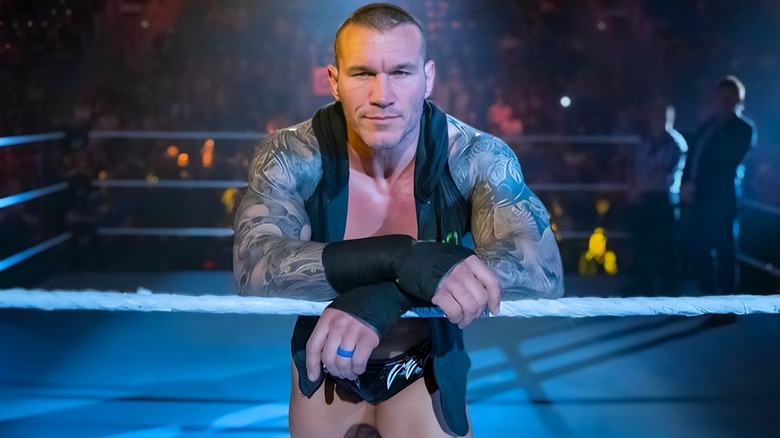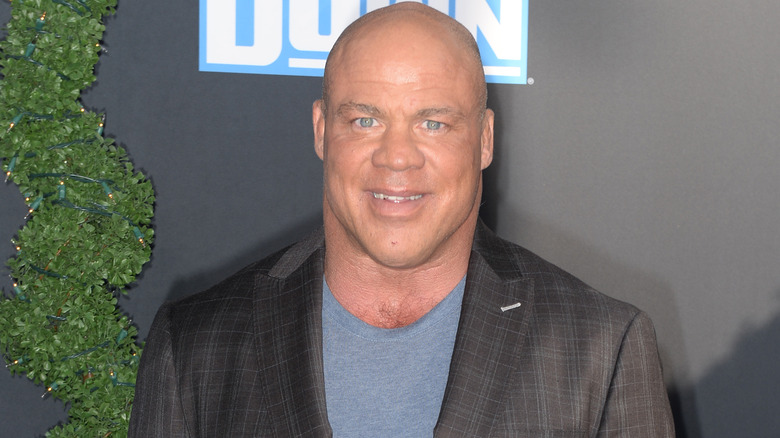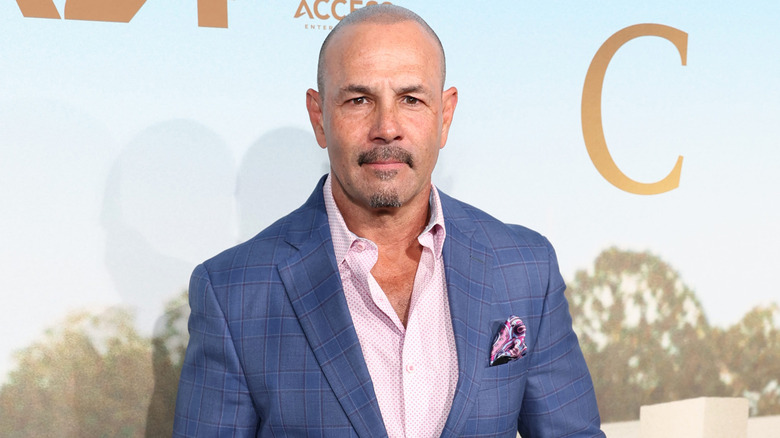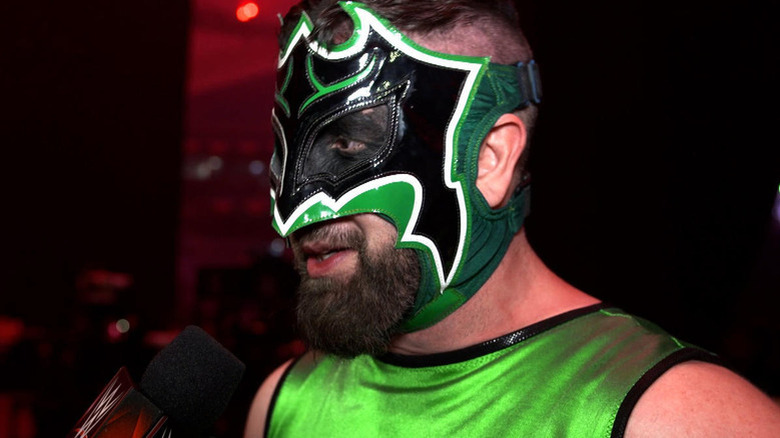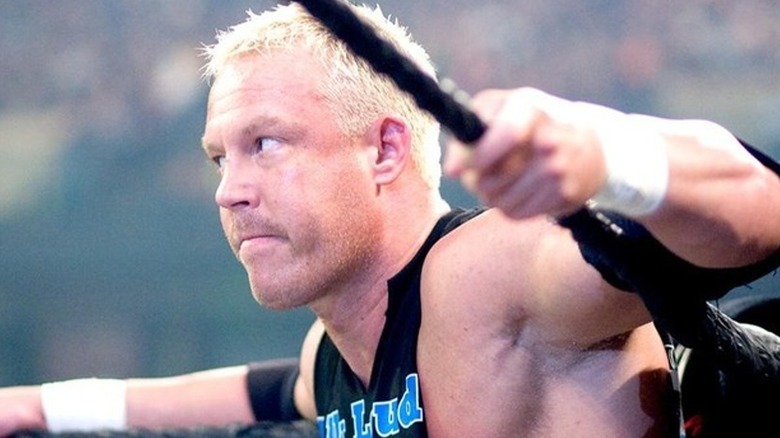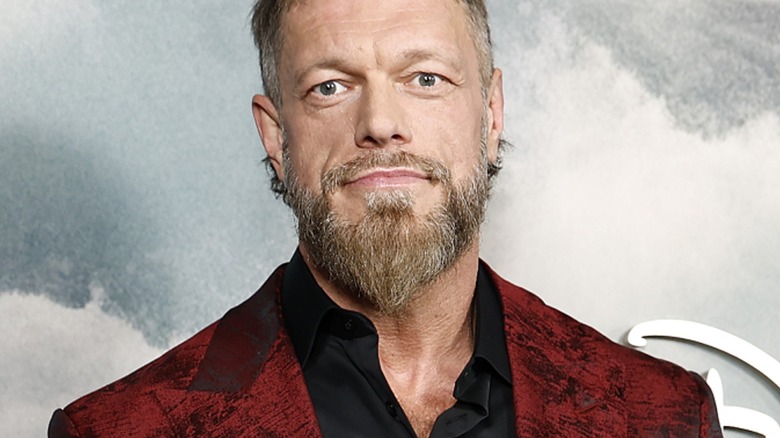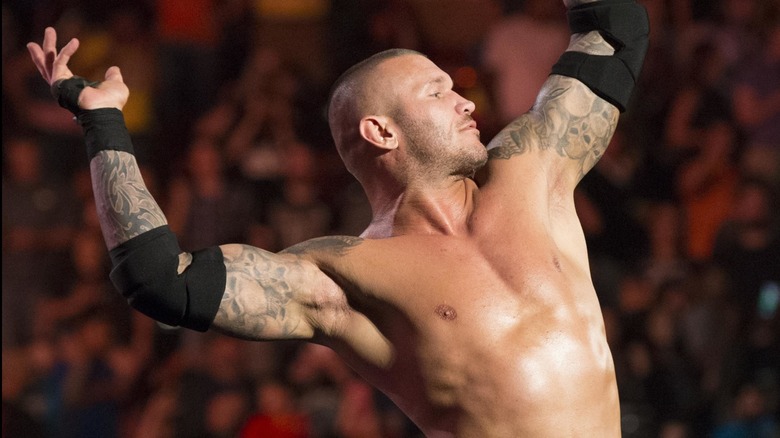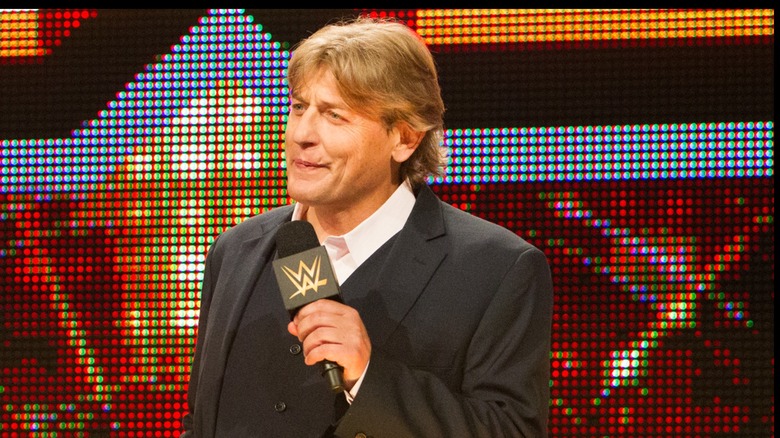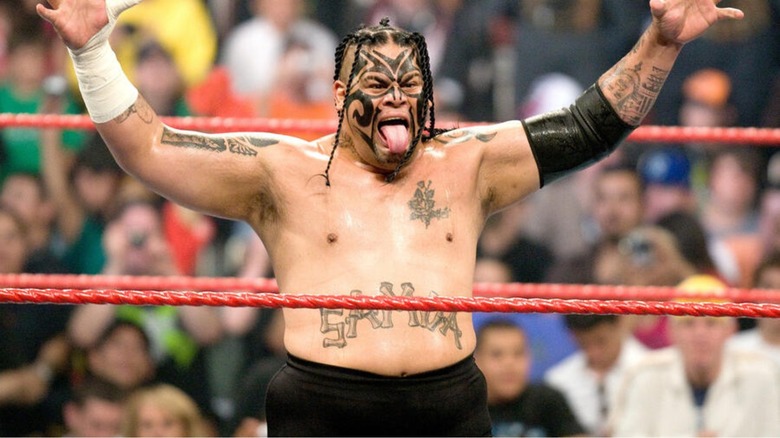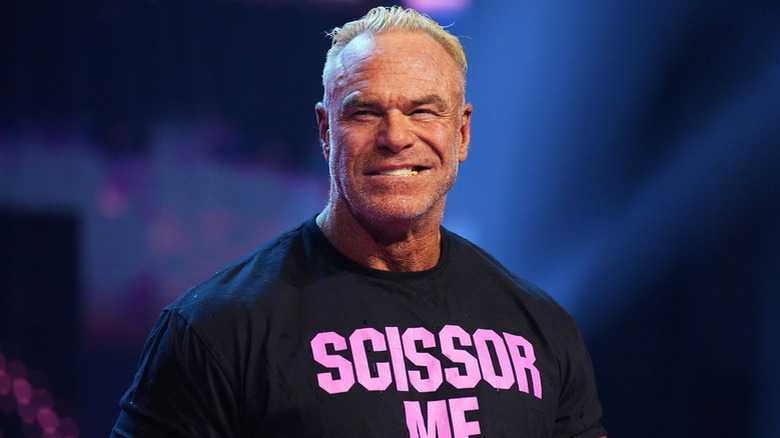Wrestlers Handed Suspensions For Using Steroids
Professional wrestlers go to extreme lengths to keep themselves in shape for aesthetic and performance reasons. They spend hours in the gym, working in the ring, and trying their very best to stay out of the middle aisles in the supermarket, which contain more calories than a McDonald's deep-fat fryer. However, like most things in life, there are always shortcuts, and the preferred shortcut for some wrestlers is the use of performance-enhancing drugs and steroids.
At one point in time, steroids ran rampant through the wrestling business. Athletes, constantly wanting to look and feel bigger, would pop pills and inject themselves with various substances so that they wouldn't lose their spots on the card. However, steroid use has drastically dropped as the era of pushing smaller, more natural-looking wrestlers continues to thrive, leading to the business becoming healthier in the process.
Despite this, there have been a few cases where wrestlers have decided to use steroids for a variety of reasons, leading to hefty suspensions, fines, and even firings, with these men being some of the most famous examples in recent memory.
Kurt Angle
The fact that Kurt Angle was able to wrestle at all by the end of his first WWE run is a genuine miracle. The Olympic gold medalist broke his neck five times in his career, and no matter how much he tried to push through the pain, things just seemed to get worse. By 2006, Angle was in so much pain that he had requested time away to let his injuries heal, but knowing that he could rely on the Olympian to perform well, Vince McMahon told him no, which was the worst thing he could have done.
Angle resorted to abusing alcohol and painkillers to numb his pain. In mid-2006, Angle was suspended from WWE for testing positive for nandrolone (decadurabolin) following a sting at the Palm Beach Rejuvenation Center. However, his use of steroids may not have been illegal as reports that came out at the time claimed that Angle had a prescription for them, something that is common in athletes who have suffered severe injuries to help their recoveries go smoother. Angle was also fined $125,000, and once he realized that he was being drafted to the new ECW brand that summer, he requested his release from the company and would spend the next decade in TNA Wrestling.
The WWE Hall of Famer has been open and honest about his troubles with addiction. Angle has admitted to steroid use, noting that it affected his reputation. Being seen as an Olympic gold medallist, only to then get caught using PEDs, was something that he was incredibly sad about. Fortunately, Angle got clean and returned to WWE in 2017 before officially retiring in 2019.
Chavo Guerrero
Back in the summer of 2007, a scandal relating to Signature Pharmacy rocked the wrestling world as the pharmaceutical company advertised itself as a cutting-edge provider of drugs relating to women's health. However, a probe was launched on the company that discovered an operation to produce and distribute steroids, with authorities claiming that the company dumped more than $10 mmillion worth of illegal drugs into the state of New York alone.
Later that year, it was discovered that many WWE wrestlers, past and present, had purchased drugs from a Signature branch in Orlando, Florida, with Chavo Guerrero being one of them. Guerrero had reportedly bought somatropin, nandrolone, and anastrozole between April 2005 and May 2006, as well as other drugs that weren't officially disclosed. On top of this, Guerrero's uncle, Eddie Guerrero, who passed away in November 2005, was also named as one of the wrestlers who had received steroids from the Signature Pharmacy branch in Orlando.
Guerrero was suspended for 30 days in the fall of 2007 and returned to a full-time schedule by the end of the year. Upon his return, life seemed to go back to normal for Guerrero, as he ended up winning the ECW Championship in January 2008 before losing it to Kane at WWE WrestleMania 24. Guerrero has since made a name for himself outside of wrestling, working on TV shows and movies, including 2023's "The Iron Claw."
Gregory Helms
Signature Pharmacy will be mentioned a lot over the next few entries, as the 2007 scandal caught out a variety of wrestlers that some people may not have expected. One of them was Gregory Helms, who had just wrapped up a 385-day reign as the WWE Cruiserweight Champion.
Helms, like many other wrestlers, was suspended from WWE for 30 days after it was found out he purchased testosterone, genotropin (a human growth hormone), and nandrolone between 2003 and 2007. He had also purchased another human growth hormone from a separate doctor in Arizona in 2005. Helms posted a lengthy message on his MySpace page in March 2007 addressing the situation, claiming that he was taking the medication that the doctors told him to in order to deal with his mounting injuries.
These injuries came to the forefront in May 2007 when it was announced that Helms would be out of action for 18 months after breaking two vertebrae in his neck, meaning that his eventual suspension from the company due to the Signature Pharmacy scandal happened while he was on the shelf. Helms continued to have issues with drugs and alcohol in the following years but has cleaned up his act and is now a well-respected road agent and producer in WWE.
Mr. Kennedy
Mr. Kennedy had the luck of a man whose entire WWE run was booked by a cursed monkey's paw. Kennedy was on course to have one of the biggest pushes in WWE history when he arrived on the main roster in 2005. He arrived on "Smackdown" with an undefeated streak, defeated The Undertaker at the 2006 Survivor Series pay-per-view, and won the 2007 Money in the Bank ladder match at WrestleMania 23. However, he lost his briefcase to Edge after people thought he would be out with an injury, which was less severe than first expected.
When he returned, he was in line to be Vince McMahon's illegitimate son, but he was caught up in the Signature Pharmacy scandal and suspended for 30 days. Kennedy reportedly received shipments of anastrozole, somatropin, and testosterone between October 2006 and February 2007. This caught the eye of many people when they realized that shortly before his suspension, Kennedy made a media appearance where he claimed that the chance to work for WWE actually got him to stop taking steroids, which he admitted to using on the independent circuit.
Kennedy claimed that he took a prescribed steroid to deal with a nagging injury he sustained in 2005. However, he returned to the company before the end of 2007, but after a string of bad luck that saw him be classed as reckless in the ring by both John Cena and Randy Orton, he was released from his contract in 2009. After his departure, Kennedy had a successful run in TNA Wrestling, competing under Mr. Anderson.
Edge
One of the biggest names to be included in the list of the Signature Pharmacy wrestlers was "The Rated-R Superstar," Edge, aka Adam Copeland. The former WWE Champion had never been one to look like a hulking beast that could rip someone in half, but he was one of the people who had to be suspended in 2007 for a WWE Wellness Policy violation.
Edge reportedly received somatropin, genotropin (both human growth hormones), and stanozolol between September 2004 and February 2007. However, this was all by design, according to the man himself. The former WWE Champion had already revealed in an interview with Michael Lansberg that he had taken steroids in April 2004 after returning to WWE from neck surgery. Still, Copeland addressed the steroid situation following the scandal and said that he was taking human growth hormones after having further complications with his neck. He noted that the doctors he talked to about it thought taking the drug would help the healing process and that he wouldn't have done it had it not been for strict medical advice.
Fortunately for Edge, his suspension fell while he was out injured with a torn pectoral muscle. He returned to the company at the end of 2007, winning the World Heavyweight Championship he had to vacate. He would go on to main event WrestleMania 24 the following year and remained active in WWE until 2011 when he was forced into an early retirement. Fast-forward to 2020, Edge was medically cleared to return to in-ring action, and after another three years in WWE, Copeland joined AEW.
Randy Orton
"The Viper" had a chequered reputation during the 2000s for various reasons, including a 60-day suspension for unprofessional conduct in 2006. Orton was also involved in the Signature Pharmacy scandal, where he was alleged to have purchased somatropin, nandrolone, stanozolol, and testosterone between September 2004 and February 2007. However, to the surprise of many, Orton was the sole wrestler active on WWE's roster not to receive a suspension for his involvement despite violating the Wellness Policy.
Orton was initially flagged by the Wellness Policy in 2006 but didn't end up serving his suspension until the start of 2007. With the Signature Pharmacy scandal involving him, WWE didn't want to risk firing one of its biggest stars for three suspensions. The same couldn't be said for what happened in 2012 as Orton was officially suspended for 60 days due to a second violation of the WWE wellness policy, where an oral steroid named methandrostenolone, also known by its trade name of Dianabol, and marijuana was found in his system. This, of course, raised alarm bells for WWE as one of its top stars was one violation away from being fired due to the three-strike rule that comes with the Wellness Policy.
Since 2012, Orton hasn't violated the policy again, and he has also had one of his strikes scrubbed from his record just to be safe. He has gone on to main event WrestleMania and won multiple World Titles along the way. After a layoff due to a back injury that kept him out of action for 18 months, Orton returned to WWE at Survivor Series 2023, looking like he ate the 2012 version of himself.
William Regal
Between 1983 and 2013, William Regal was seen as one of the world's best technical wrestlers and a man many of the fan favorites in WWE and AEW look up to today. Despite this, the Englishman hasn't always been able to keep himself clean when it comes to performance-enhancing drugs.
Like many other people on this list, Regal was one of the wrestlers who was caught up in the Signature Pharmacy scandal. Between November 2004 and November 2006, he received stanozolol, somatropin, genotropin, and anastrozole, leading to a 30-day suspension. Regal eventually resorted to using them again in 2008, resulting in a second Wellness Policy violation and a 60-day suspension right after he was crowned that year's King of the Ring winner.
It was rumored at the time of Regal's 2008 suspension that he resorted to steroids to cope with the pressure of having a position at the top of the card again. The veteran has been open and honest about his personal struggles, and as of 2024, he is not only clean and healthy but has featured prominently on both WWE and AEW TV in recent years.
Umaga
The real-life Eddie Fatu made his first appearances in WWE back in 2002 as a member of 3 Minute Warning, where he went by the name of Jamal. He was released in 2003 following an altercation at a bar. He went on to work for companies like TNA, MLW, and All Japan Pro Wrestling, impressing WWE officials enough to bring him back and repackage him as Umaga, the "Samoan Bulldozer."
In 2007, Umaga was one of the wrestlers listed in the Signature Pharmacy scandal and was suspended for 30 days. Umaga received somatropin between July and December 2006, but would continue to have problems with drugs following his return in late 2007. He floated around the midcard, occasionally making strides toward the main event scene. However, in June 2009, WWE fired him for a second violation of the Wellness Policy, which would usually result in a 60-day suspension. WWE tried to get Umaga to go to rehab to help fight his drug problem, but he refused, resulting in his release from the company.
Tragically, the former Superstar passed away on December 4, 2009, from a heart attack. Umaga's cause of death was linked to painkillers, somas, and valium in his system, with medical examiners discovering that he had heart and liver disease, potentially brought on by the use of performance-enhancing drugs.
The Ultimate Warrior
After discussing the Signature Pharmacy fallout, it's time to reflect on the 1990s steroid scandal that rattled WWE. In 1991, Dr. George Zahorian III, who worked as a ringside doctor for the company, was arrested for illegally supplying anabolic steroids. He revealed that he had personally sent steroids to Vince McMahon and the company's Titan Towers headquarters. This, of course, didn't go down well when The Ultimate Warrior, a man who had literally admitted to using steroids throughout his career, was brought back to the WWF in 1992 following a self-imposed exile.
Due to the federal scrutiny the company was under, WWE hired chemist Mauro Di Pasquale in June 1992 to watch over the company's new drug testing program, as he had a reputation for coming down hard on people who failed a drug test. Di Pasquale popped Warrior for steroid use that September and also convinced McMahon to fire the former champion from the company to show the federal government that the policy was legitimate and would be taken seriously. McMahon agreed, and Warrior was gone by the end of 1992.
There is a conflicting story to this, as McMahon claimed that he only suspended Warrior for experimenting with a growth hormone. However, the former WWF Champion was angry with McMahon's actions and no-showed a series of house shows before leaving the company altogether. Despite a turbulent relationship with the company, Warrior was eventually inducted into the WWE Hall of Fame in 2014, mere days before he passed away from a heart attack at the age of 54.
Billy Gunn
Professional wrestling fans have a running joke that Billy Gunn is a lot bigger than people believe. However, if you had met him in 2015, he might have been one of the bulkiest individuals anyone has ever seen. Furthermore, that same year, Gunn was fired from his role as a trainer in WWE for testing positive for performance-enhancing drugs.
The former New Age Outlaw tested positive for elevated testosterone levels, and by elevated, we mean higher than every skyscraper in North America stacked on top of each other. Gunn had a 37-1 testosterone/epitestosterone ratio when he took a test at a powerlifting meet in July 2015. For comparison, the average ratio is 4-1, meaning he had nine times the legal amount of testosterone in his system. This is unsurprising from a man who once claimed that he loved steroids.
To make this story even crazier, not only was Gunn banned from powerlifting for four years due to the failed drug test, but WWE didn't even know that he was competing in the sport, let alone banned from it, before his firing. Gunn has since calmed down and now competes for All Elite Wrestling, where he mainly performs alongside The Acclaimed. He has enjoyed success in the company's trios division, winning its designated titles with Max Caster and Anthony Bowens, and becoming a regular fixture on weekly television.
If you or anyone you know needs help with addiction issues, help is available. Visit the Substance Abuse and Mental Health Services Administration website or contact SAMHSA's National Helpline at 1-800-662-HELP (4357).
